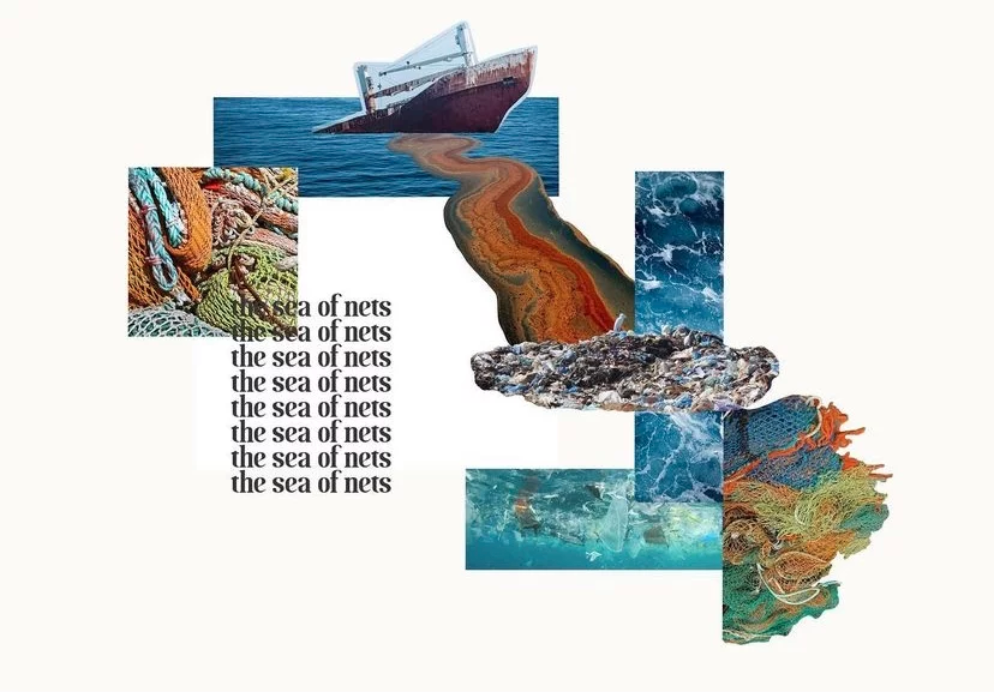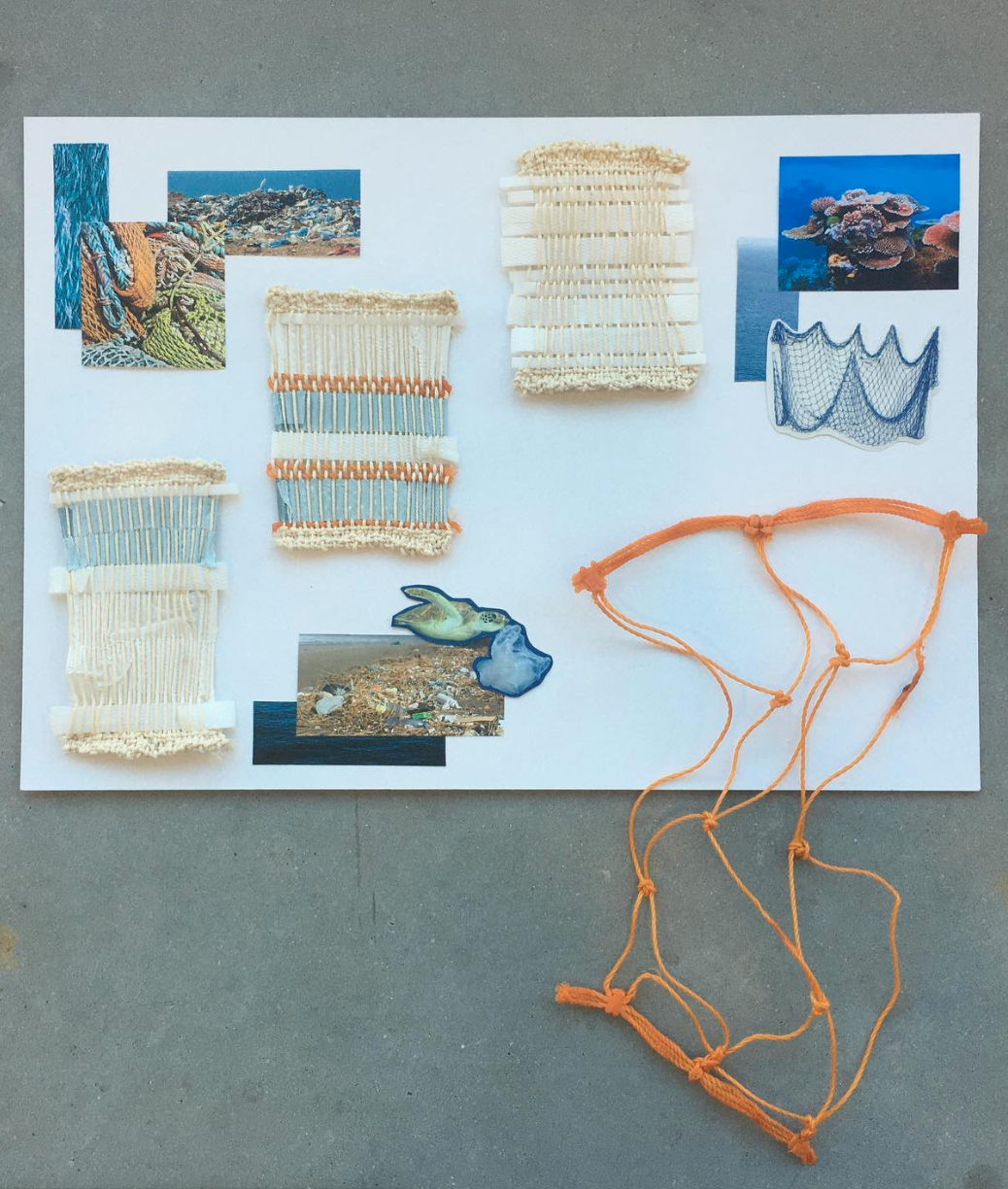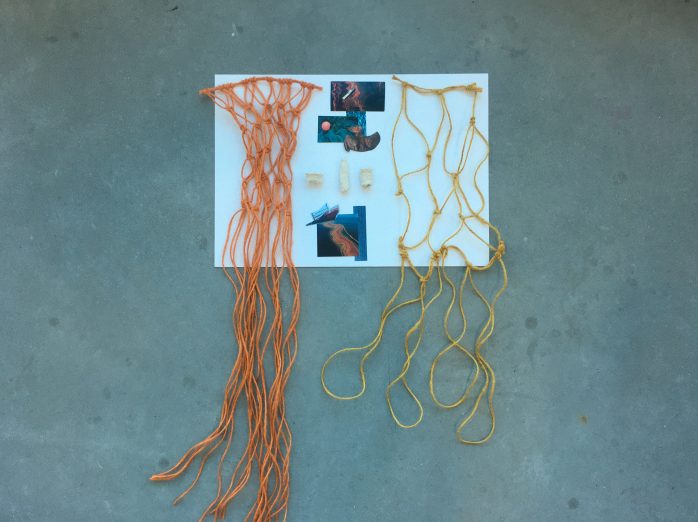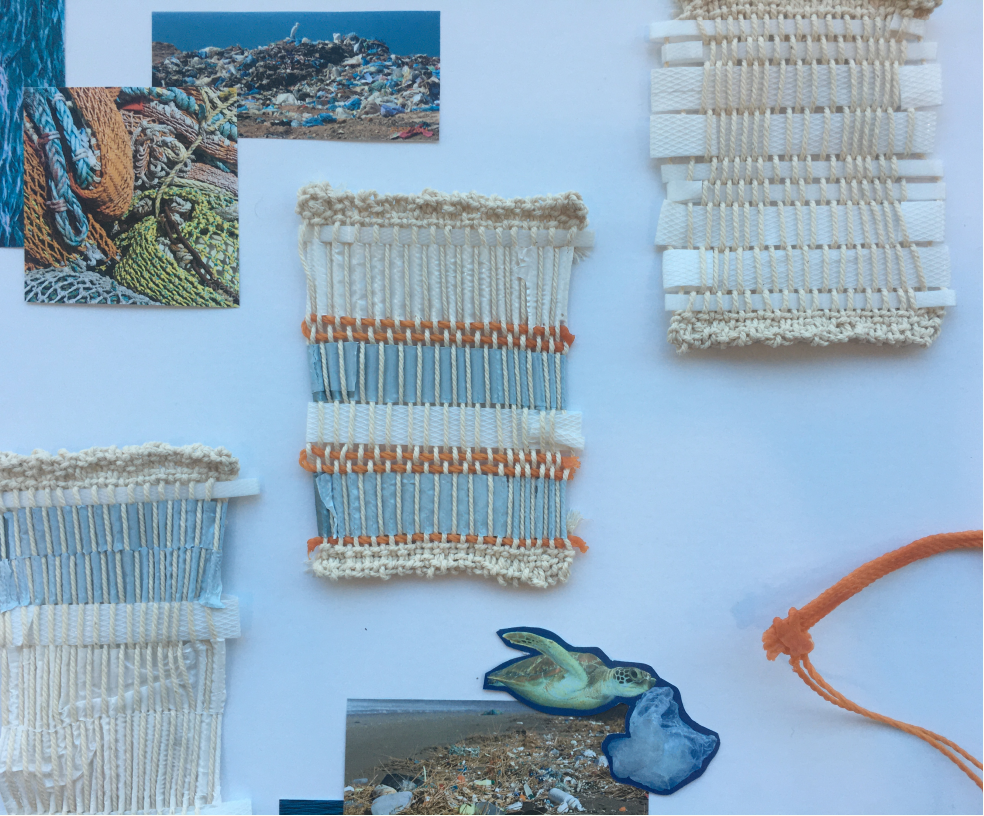

The Sea of Nets - following a project brief called 'Futures', seeing the world from the perspective of 2050. Creating woven and knotted solutions to plastic waste, oil spills and coral destruction in the ocean; using all recycled materials such as fishing nets and rope, plastic packaging ties and twine.
‘By 2030 it is estimated that there will be up to 300 million tonnes of plastic in the ocean. With the increase of pollution in the ocean what happens to the marine wildlife? How does this affect our eco system? How will this affect human life? Climate change is the centre of our world and is an impending problem. Plastic waste, spillage of oil and the degradation of coral reef are all indicative of human disregard for how our actions affect the world around us.‘
In this 4 week project I designed solutions such as:
-a knotted net protection for coral beds. Aiming to prevent stamping and destruction from tourists / divers. This concept was made out recycled fishing nets, using the bright colours of these nets to stand out to divers communicating a barrier between themselves and the reef. These nets aim to act as prevention of damage to this vitally important reef.
-a woven barrier to collect plastic pollution from the sea, made out of recycled plastic strips & ties and twine. Designed with larger gaps than a normal net and also to only be 1-2 metres from the waters surface - and not to touch the sea bed - to prevent it from affecting wildlife and natural habitats.
-a woven material out of recycled twine, acting as a hypothetical absorbing fibre, to absorb oil spills from the ocean water and also off of mammals who were affected by said oil spill. Woven in ring/cone shapes to allow oil to be absorbed from every area of the mammal.
‘By 2030 it is estimated that there will be up to 300 million tonnes of plastic in the ocean. With the increase of pollution in the ocean what happens to the marine wildlife? How does this affect our eco system? How will this affect human life? Climate change is the centre of our world and is an impending problem. Plastic waste, spillage of oil and the degradation of coral reef are all indicative of human disregard for how our actions affect the world around us.‘
In this 4 week project I designed solutions such as:
-a knotted net protection for coral beds. Aiming to prevent stamping and destruction from tourists / divers. This concept was made out recycled fishing nets, using the bright colours of these nets to stand out to divers communicating a barrier between themselves and the reef. These nets aim to act as prevention of damage to this vitally important reef.
-a woven barrier to collect plastic pollution from the sea, made out of recycled plastic strips & ties and twine. Designed with larger gaps than a normal net and also to only be 1-2 metres from the waters surface - and not to touch the sea bed - to prevent it from affecting wildlife and natural habitats.
-a woven material out of recycled twine, acting as a hypothetical absorbing fibre, to absorb oil spills from the ocean water and also off of mammals who were affected by said oil spill. Woven in ring/cone shapes to allow oil to be absorbed from every area of the mammal.


